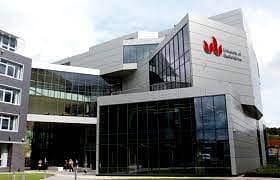The course offers:
- A wide range of facilities with access to technical and digital media such laser-cutting, 3D printing, image processing software, moving image software, high definition photographic equipment and high quality photo screen-printing.
- A teaching and learning strategy that is aimed at giving a robust focus to your artistic or design practice.
- Dedicated studio space for you to work, access to workshops and technical support
- Collaboration and guiding undergraduate students hands on practice
- One-to-one contact with staff with an emphasis on your personal creative development. Personal tutor in your discipline
Unit Information - What will I learn?
Units
- Art And Design Major Project (ART005-6) Compulsory
- Contemporary Issues: Art And Design (ART003-6) Compulsory
- Historical Contexts: Art And Design (ART001-6) Compulsory
- Studio And Professional Practice (ART002-6) Compulsory
- Studio Practice And Research (ART004-6) Compulsory
How will I be assessed?
A range of appropriate assessments will enable you to grow in confidence and demonstrate your acquisition. You should, provided you have engaged in the course, be able to meet the demands of formal summative assessment in your stride. The requirements for assessment range through the types listed below. Since self-directed practical projects are at the heart of learning activities they will logically be the subject of assessment. Formative and summative assessments of practical assignments are seen as an important method of ensuring your understanding, developing relevant cognitive and practical skills and of ensuring personal creative development and progress. Continuous appraisal by both peer review and your tutors is a feature of the course and although there are no end-point examinations, summative assessment is carried out in relation the work that you produce as part of the course. This will predominantly be based on an accumulation of the work that is done as a result of a research enquiry that is initiated and developed by you engaging in a range of activities as part of its production. The following are examples of the various assessment methods used: - Coursework to include examples of, creative practice in an appropriate medium, associated research material, notebooks, research reports, essays, contextual writing. - Assessments based on individual presentations. - Portfolio reviews are a key means of assessing but they are also important for collating work for presentation in a professional context, such as an interview. Essays and reports feature in developing your writing skills, helping you to express ideas in a variety of ways and styles and to develop academic writing skills that are of particular benefit in producing a contextual rationale for your major project.


